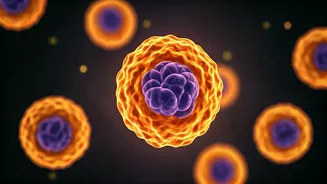Skin Changes Emerge
One of the most noticeable indicators of aging appears on the skin. Reduced collagen production leads to wrinkles, fine lines, and decreased elasticity.
This is often exacerbated by sun exposure, which causes premature aging and dark spots. Moreover, the skin becomes drier because it produces less oil, leading to a dull complexion. The first step to combat these effects is to protect the skin from sun damage through regular use of sunscreen with an appropriate SPF, regardless of the season. Also, incorporating a good moisturizer with ingredients like hyaluronic acid to combat dryness and promote hydration will help give the skin the needed care.
Graying Hair Appears
Graying hair is a classic sign of aging, as the production of melanin, the pigment that gives hair its color, slows down. This typically begins in the late thirties or early forties, but it can be affected by genetics and lifestyle factors. While there is no way to fully prevent graying, several steps can help manage it. Eating a balanced diet that contains nutrients like vitamins B12 and D, copper, and iron can support hair health. Additionally, using gentle hair care products and avoiding harsh treatments like frequent coloring can help. Consider using hair products specially formulated for gray hair to enhance its natural shine and texture, and regularly deep condition to hydrate it.
Muscle Mass Diminishes
After 40, people begin to lose muscle mass, a condition known as sarcopenia. This is a natural part of the aging process, occurring at a rate of about 3-8% per decade after the age of 30. Reduced muscle mass can lead to decreased strength, stamina, and an increased risk of injury. Counteracting this requires a consistent strength training routine that is designed to maintain and build muscle. The diet should include sufficient protein intake to provide the building blocks necessary for muscle repair and growth. Furthermore, incorporating resistance exercises can boost metabolism and overall health, aiding in muscle retention. Exercise should be tailored to ensure it doesn't cause injuries.
Slowing Metabolism Changes
Metabolism, the process by which your body converts food and drink into energy, tends to slow down with age. This can lead to weight gain and make it harder to shed extra pounds. Hormonal changes, decreased muscle mass, and reduced physical activity all contribute to a slower metabolic rate. You can combat this with strategies like maintaining an active lifestyle and building muscle mass. Doing regular exercise, especially activities that increase your heart rate, can boost your metabolic rate. Additionally, a healthy diet, rich in fiber and lean proteins, provides the energy your body needs while supporting overall health. Portion control is also important in regulating calorie intake.
Bone Density Declines
Bone density naturally decreases with age, increasing the risk of osteoporosis and fractures. This is particularly relevant for women after menopause. Ensuring a sufficient intake of calcium and vitamin D is essential for maintaining strong bones. Including weight-bearing exercises like walking, running, or weight training can stimulate bone growth. Avoid habits like smoking and excessive alcohol consumption, which can negatively impact bone health. Regular bone density checkups are also advised to monitor bone health and ensure that interventions are implemented if necessary. Incorporate bone-supporting foods like dairy, leafy greens, and fortified foods into your diet.
Vision and Hearing
Both vision and hearing can deteriorate with age. Presbyopia, or the gradual loss of the ability to focus on close objects, becomes common. Hearing loss, or presbycusis, is a progressive loss of hearing, often affecting the ability to hear high-frequency sounds. For vision, regular eye exams are crucial, and corrective lenses, such as reading glasses or bifocals, may be necessary. Protect your eyes from UV rays by wearing sunglasses. Regarding hearing, hearing tests are recommended to detect any loss, and hearing aids can improve the quality of life if needed. Limiting exposure to loud noises can also help to preserve hearing health, along with routine ear cleaning.
Cognitive Function Changes
Cognitive functions, such as memory and processing speed, can also change. While some decline is normal with age, there are ways to keep your brain sharp. Engaging in mentally stimulating activities like learning new skills, reading, and solving puzzles can help to keep the brain active and healthy. Physical exercise improves blood flow to the brain, which in turn enhances cognitive function. Following a balanced diet, including foods rich in antioxidants and omega-3 fatty acids, is also beneficial. Adequate sleep is vital, as it allows the brain to consolidate memories and perform essential functions. Social interaction also plays a crucial role in maintaining cognitive health.












